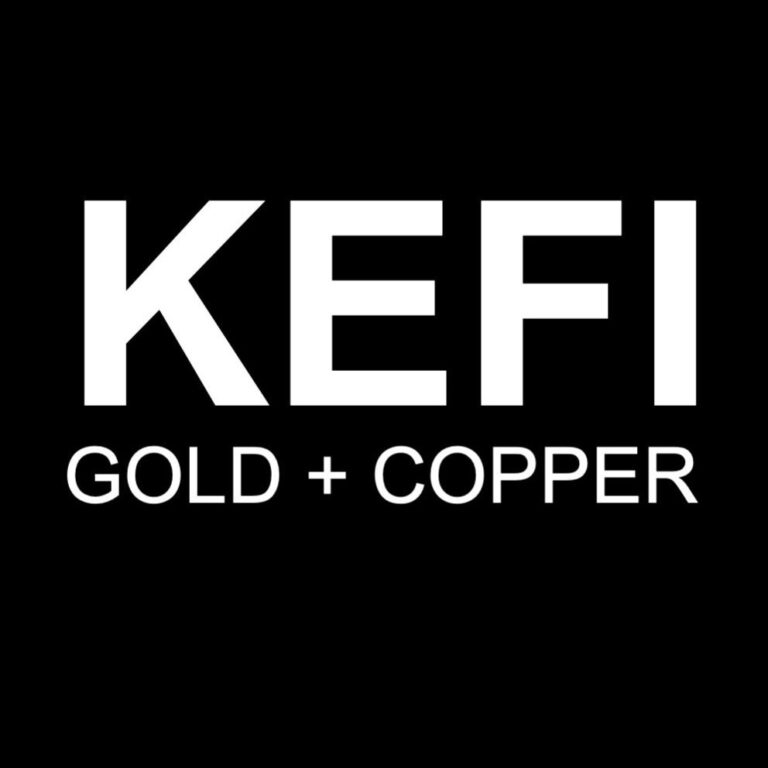KEFI Minerals Plc (LON:KEFI) is targeting the completion of a funding package for its Tulu Kapi Gold Project in Ethiopia in 3Q18, allowing first gold production in late 2020. Through a planned combination of a debenture issue, deferred payments and selling down its interest in the project, the company aims to eliminate the requirement for it to contribute equity to its development. Once funded, the company intends to recommence exploration in both Ethiopia and Saudi Arabia.
Tulu Kapi Project; total funding requirement of US$219m. An updated DFS into this conventional open-pit and CIL-based project was completed in May 2017. Reserves totalled 1.05Moz at a grade of 2.1 g/t, with a total of 980,000oz gold produced over a mine life of 7.5 years. Average gold production over the first three years of operation is planned to be 144,000oz pa. Updated estimates of life-of-mine AISC are now US$803/oz, and estimated capex, including owners’ costs and working capital, is US$182m. The total funding requirement includes a further US$34m of financing charges (mainly rolled-up interest over the construction period) and a small overrun allowance for a total requirement of US$219m.
Innovative funding arrangement. The company plans to raise US$150m of debt through the issuance of a debenture that would have a term of nine years with an anticipated gold price-related interest rate of 10% at US$1,250/oz (rising to 15% at US$1,700/oz). It also aims to secure a US$14m working capital facility against stockpiles and to defer US$15m of contractor fees, reducing the funding requirement to US$40m. Of this, US$20m is accounted for by the government’s planned contribution of project infrastructure to an agreed value of US$20m in return for which it will increase its stake in the project from 5% to 25%. The company aims to fund the outstanding US$20m equity requirement by selling a 25% interest in its remaining 75% interest in the project, reducing its equity interest in the project to 56.3%.
Underground potential at Tulu Kapi and exploration in Ethiopia and Saudi Arabia provide upside. The company plans to recommence exploration once construction at Tulu Kapi is underway.
Executive Summary
In its regular quarterly announcement, KEFI recently provided updates on the progress towards the financing of its Tulu Kapi Gold Project in Ethiopia, the current political situation in Ethiopia and its exploration plans for both Ethiopia and Saudi Arabia.
The company continues to move towards the completion of the funding package for Tulu Kapi, which it is looking to achieve within five months. It aims to fund the project entirely from third-party sources, with no equity contribution from KEFI. The proposed funding package includes debt, deferred payments and a reduction of the company’s interest in the project to 56.3%. We note some slippage in the timing of commencement of construction by a quarter and an increase in the upfront project capital estimate from US$174m to US$182m, along with an increase in estimated lifeof-mine AISC from US$773/oz to US$803/oz.
The update and associated presentation were also aimed at refocusing attention on KEFI’s extensive exploration interests in both Ethiopia and Saudi Arabia, on which it intends to recommence exploration during 2H18, after certain licences have been formalised by the governments in both countries and once the Tulu Kapi Project financing has been completed.
Tulu Kapi Development
KEFI is aiming to commence construction of Tulu Kapi in September 2018, which, after a 24-month construction period, could allow commissioning in 3Q20 and first production in 4Q20. The company is hopeful of being able to complete the construction of the project in a shorter timeframe.
Total Project Funding Requirement of US$219m, Including Financing Costs
The current best estimate for the project capex, including contingencies, owners’ costs, community and working capital, is US$182m. Allowing US$38m for rolled-up interest and finance charges and a small cash buffer takes our estimate of the total project financing requirement to US$219m.
Intention to Fund Project Entirely from External Sources with no Equity Contribution from KEFI, which would Maintain a 56.3% Interest in TK
KEFI is now targeting to raise US$150m (previously US$140m) from a bond issue through an SPV. The bond is expected to have a nine-year term, a 2.5-year repayment holiday and a gold price-related interest rate that we anticipate will be 10% at a gold price of US$1,250/oz (rising to 15% at US$1,700/oz). The associated rolled-up interest and fees total US$34m and are included as part of the project’s funding equirement.
The bond issue is subject to a number of factors, including agreeing the level of historical expenditures on the project with the government, the commencement of community resettlement and an equity capital subscription. It also remains subject to the completion of due diligence, regulatory approvals and the execution of binding documentation. This could allow draw-down to take place in September, subject to a timely turnaround by the rating agencies.
The Ethiopian Government has agreed to provide project infrastructure (including access roads and electricity power lines) to a total value of US$20m, in return for a 20% direct interest in the project (through the operating subsidiary Tulu Kapi Gold Mines (TKGM)). The government already has a statutory 5% free-carried interest in the project.
In order to minimise its equity contribution, the company also expects to conclude a US$14m working capital loan backed by stockpiles, probably with a local lender. The company has agreed with one of the contractors to defer US$15m of costs until the project is in operation, further reducing the upfront funding requirement.
KEFI is also in discussions with a number of third parties with respect to a possible US$20m equity investment for 25% of KEFI Ethiopia (its local subsidiary that owns the 75% interest in TKGM). If concluded, the third party would have an 18.8% equity interest in the project (ie, 25% of 75%). These discussions are ongoing and the company hopes to conclude a transaction within the next few months. Completion of a financing package on these terms would provide all the funding required for the project’s development, eliminating the need for an equity contribution from KEFI, which would maintain a 56.3% equity interest in the project.
Commencement of Construction Targeted for September 2018, Dependent on Closing of Bond Issue
The company is aiming to commence construction of the project at the end of the rainy season and on completion of the bond financing, which it is targeting for September this year. Given the 24-month construction timetable, this would allow commissioning to commence in September 2020 and commercial production around the end of 2020. The company is hopeful of being able to complete the project’s
construction in a shorter timeframe.
Upgrading the road is not required for project construction to commence and the Ethiopian Roads Authority has committed to complete the upgrade of the 12km of road from the project site to the main arterial road by late 2019. The Ethiopian Electric Power Company has also confirmed that it is planning to install the power connection from the main transmission line by late 2019.
With respect to resettlement, the Oromia Regional Government and KEFI have agreed the joint preparation of the resettlement land and are currently awaiting approval to commence the process. The company has also announced that the joint committees of the company and the Ethiopian authorities have now triggered the formalisation of the resettlement arrangements for each of the affected individual households in the area. KEFI will now execute its preparations for community re-settlement.
Current Financial Model
KEFI stated that the current financial model included cash costs US$712/oz and AISC of US$803/oz and total costs of US$984/oz, including depreciation and amortisation. Assuming a gold price of US$1,300/oz the project generated a post-tax and post-debt NPV8 of US$109m at the start of construction and a three-year payback.
Ethiopian Situation
It was a busy quarter for Ethiopia politically. The government released 3,000 political prisoners, there was an unexpected change of prime minister and the State of Emergency was re-introduced.
The appointment of Abiy Ahmed as prime minister at the end of March 2018 is potentially a significant positive development. He is the leader of the Oromo People’s Democratic Organisation (OPDO), one of the four ethnic parties that make up the Ethiopian People’s Revolutionary Democratic Front (EPRDF) coalition that rules the country. He is the first country leader from the Oromo ethnic group, the biggest in the country, which has been largely responsible for the unrest over the past three years.
His appointment came a month after the surprise resignation of the previous prime minister, Hailemariam Desalegn, which led to a national six-month State of Emergency being declared. Desalegn had headed the government for five years







































